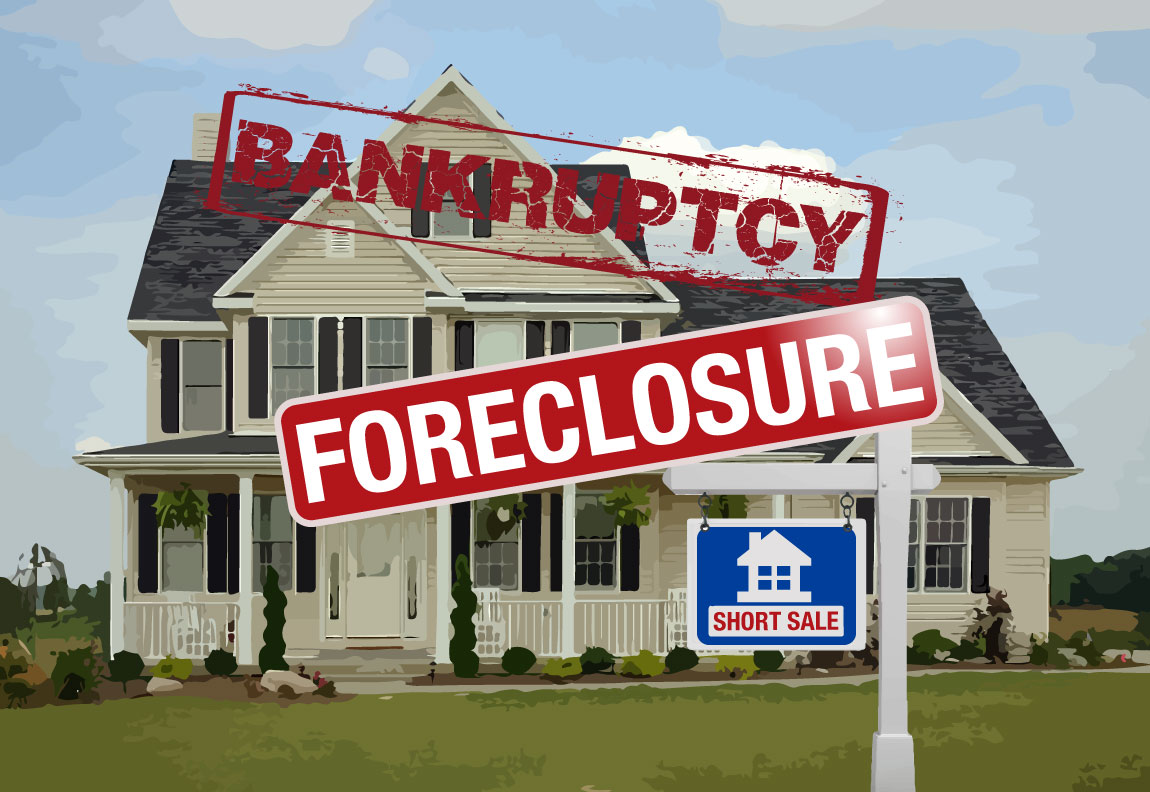Info Center
Bankruptcy versus Foreclosure or Short Sale

Negotiating with your lender may help you to avoid foreclosure on your home. If negotiating is not an option, filing bankruptcy may be the next option before foreclosure.
If you are faced with the unhappy realization that you can’t afford to make your mortgage payments and you can’t sell your home because it is significantly underwater, you still have several options.
Negotiating a Short Sale or Deed-In-Lieu of Foreclosure with your lender may be possible though it requires negotiating with your lender. If these options are not available to you and foreclosure seems imminent, then you may want to consider filing a bankruptcy before your home is sold at a foreclosure auction.
Deed-in-Lieu of Foreclosure
A deed-in-lieu of foreclosure is where you voluntarily transfer your home back to the lender in exchange for a release from your mortgage loan and any unpaid balance. Sometimes a lender will even offer you incentives to help you make your transition, including: offering relocation expenses to aid you in leaving the home, allowing you to stay in the home for up to three months without payments, or allowing you to lease or rent the property from the lender for up to one year. Depending on the negotiations with your lender you may be required to pay a lump sum to qualify. A deed-in-lieu of foreclosure can be a good option for people who have experienced a change in their financial situation and whose lender will allow them to transfer the home back to them. However, there is a very low probability of obtaining a deed-in-lieu of foreclosure.
Short Sale
A short sale is where you voluntarily sell your home for less than what you owe on your mortgage. A short sale must be negotiated with your lender. If you have more than one mortgage on your home, both lenders must agree to the sale, which can seriously decrease your chances of a successful short-sale. Furthermore, you may still be legally liable for any deficiency balance. Also, many lenders do not want the hassle associated with the short sale process, preferring to foreclose on the property instead.
Foreclosure
A foreclosure occurs when a lender forces the sale of your home at auction because you have failed to make required payments. The proceeds of the sale are then applied to the amount you owe on your mortgage. If you allow the home to go into foreclosure you may still owe the lender money, known as a deficiency balance.
Furthermore, your lender has the option to pursue you for the deficiency. The lender may obtain a judgment against you and attempt to garnish your wages. The lender may also “write-off,” or cancel, the deficiency and may issue you a 1099 tax form, this could force you to claim the cancelled amount as income on your tax return, which can result in significant tax debt.
A foreclosure is the worst option available, especially if you ever want to purchase a home again. A bankruptcy can stop a foreclosure and provide you with a fresh start.
Bankruptcy
A bankruptcy is a legal declaration that you cannot afford to repay your debts. A bankruptcy is a good option if you want to avoid having a foreclosure on your credit report, prevent any tax implications due to deficiency balances, and have other debt that you need help managing.
If you wish to surrender, or leave, your home, a bankruptcy can help you to manage your exit by providing you a little extra time to move and prevent any deficiency balance or tax implications. If you want to save your home, a Chapter 13 bankruptcy allows you to propose a plan to repay mortgage arrears, or the outstanding amount, on your mortgage and get back into good standing on your mortgage. Other debt that you may include in your bankruptcy includes car payments, tax debt, child support arrears, and unsecured debt such as medical bills and credit cards, repaying what you can afford on these debts through a Chapter 13 plan will help you to regain your financial health and put you in a better position to afford your mortgage payments.
Speak with your Boleman attorney today to talk about your options.
Download PDF©2025 Boleman Law Firm, P.C.
